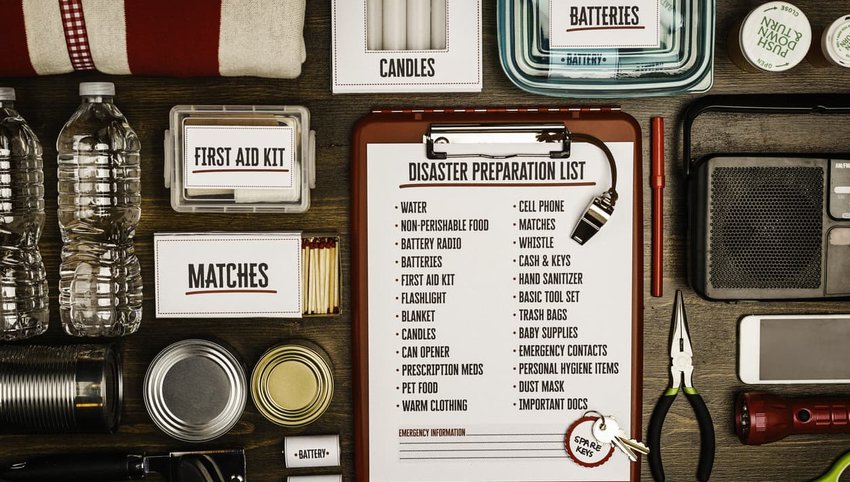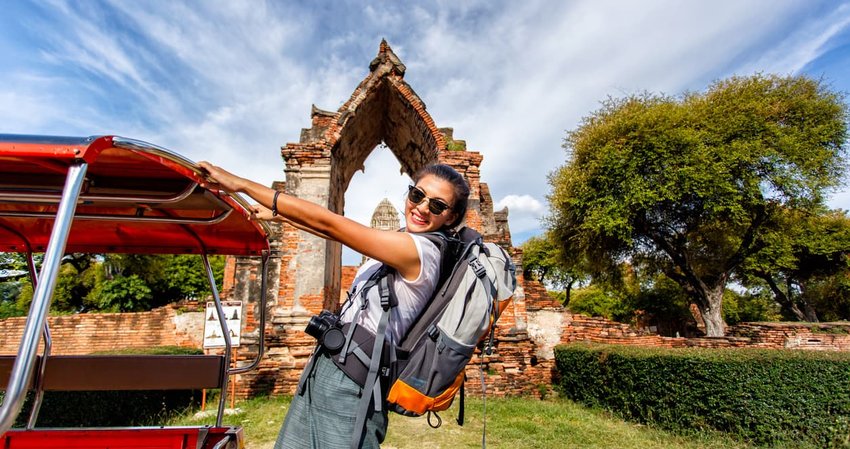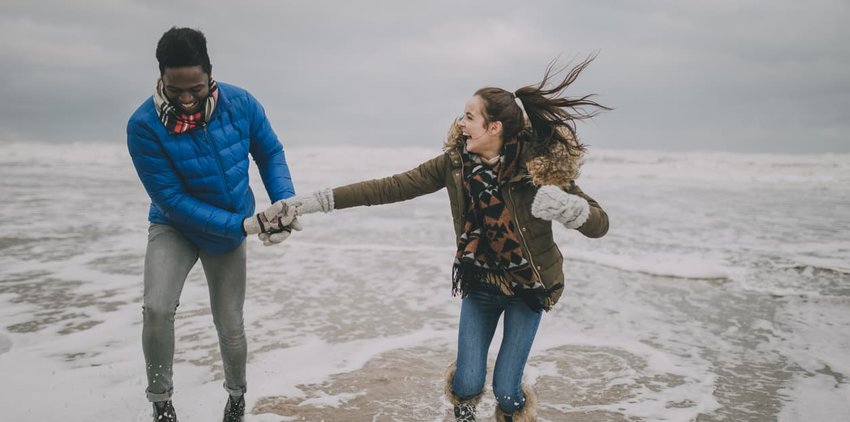Each journey away from the familiar and into the unknown is cradled by an inherent amount of risk, regardless of the hours of planning. Travel teaches both seasoned and rookie globetrotters countless lessons- patience, resourcefulness, resiliency. And it’s the unexpected mishaps and blunders that make travel the ultimate personal development tool, as learning to embrace mistakes and disasters will set you up for success on the road.
You Learn to be Observant of Local Culture

Credit: Mlenny/iStock
After an eight-hour journey on a public bus from Kathmandu, I disembarked in the city of Narayangarh for one last transfer to the village of Padampokhari in the deep south of Nepal. It was my first time in a developing nation, and when the connecting bus, packed to the brim with passengers, came to a halt on the dirt path in front of me, I remained patiently standing and assumed I must wait for the next one. Instead, I was hastily ushered onto the roof of the bus, and found myself seated amongst a crowd of curious locals with gazes fixed in my direction. On what I believed to be my most perilous bus ride, a tree branch swatted the top of my head as locals expertly ducked in time. After the initial startle, I bobbed my head in tune to the locals’ and narrowly missed a powerline.
Cultural differences present themselves in everyday situations. As experts on their country’s own rules and etiquette, locals are your role models for simple practices like riding the bus. Learn the drill and procedure of any situation by first being observant of local culture. And sometimes, a good old-fashioned blunder can teach you to better observe those around you.
You Learn to be Prepared

Credit: CatLane/iStock
Cruising down the I-25 in a little blue Mitsubishi outside of Denver, Colorado, the hefty truck in front of me abruptly swerved into the left lane. Now in full view of some tire debris, it hurtled into my rental car and smashed the bumper. The bumper partially hung from the front of the vehicle, and as I panicked about what to do next, I realized I had never asked the rental agency how to handle an emergency situation.
Each day on the road brings endless possibility, but it’s impossible to predict whether or not it’s going to be an invited one. However, if you’re prepared, you’ll be able to face and handle oncoming situations calmly. Whether it's planning ahead with travel insurance or simply packing a few life-saving items before heading out on a hike, sometimes you don't know what to prepare for until you encounter the worst.
You Learn to be Resourceful

Credit: southtownboy/iStock
I pulled out of the Golden Temple in Vientiane on a motorbike during my final afternoon in Laos, and was taken aside by two policemen who asked to see my passport and official documents for the bike. I recognized I was trapped in a scam many other travelers had warned me about, but since it was my last day in the country, my wallet was void of leftover Kip. Instead, I negotiated my way out of the situation by leaving the keys to the motorbike with the policemen, and promised a representative from my hostel would come to retrieve it. Now 20 minutes away from my accommodation and penniless, I pleaded with a friendly local for a ride back to city center just as she pulled out of her parking stall.
Thrust into unexpected situations and realizing you’re the sole person responsible for remedying the problem, you think of all the possibilities and resources available to you in the moment. In a place where you don’t speak the language or know anyone, you’re required to be inventive. Scary? Yes. But you'll learn about yourself in the process and develop some handy skills that could aid you further down the line.
You Pack a Sense of Humor

Credit: DGLimages/iStock
In preparation for my English teaching placement at an orphanage in the village of Ka Ektom in Cambodia, I stockpiled goods only found in a city, and purchased some Haribo gummy bears at a supermarket in Siem Reap for my students. I distributed these gold standard gummies as prizes after a language game, and asked my students if they enjoyed them the next day. All but one boy answered with enthusiasm. Stunned, he looked at me with wide eyes that disappeared as his head hung in embarrassment, and admitted he had thrown them in some water assuming the gummy bears would blossom like a plant. Speechless, I wondered how gummy bears could be mistaken for seeds, and then erupted into laughter.
Laughter relieves tension and generates positive feelings in the parties involved, freeing ourselves from emotional distress. Invite a smile or laugh to lighten up the situation and seek the positives under tense circumstances. Sometimes, it's the only thing you can do.




